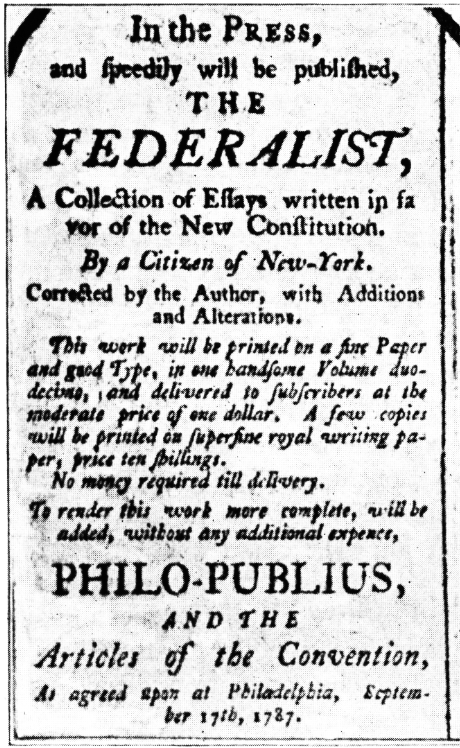We're Still Talking About Appointments? - Federalist #77
In Federalist #77, Alexander Hamilton concludes his discussion about the powers of the President of the United States.
Federalist #77
Alexander Hamilton
April 4, 1788
In Federalist #77 Alexander Hamilton continues his discussion of political appointments, despite the fact that it was thoroughly reviewed in #76.
This time he focuses on the proposal that the Senate would have too much power over the President.
Furthermore, Hamilton criticizes New York’s system for appointing offices.
The Senate’s Sway
Hamilton spends the beginning of this Paper asking the reader what power the Senate would actually hold over the President in this area.
At best, the Senate could obstruct Presidential appointments with their negative votes.
However, the President could simply appoint another candidate of his choosing. The Senate could never actually force the President to do anything.
You Think That’s Bad…
Hamilton goes on to point out that the process of appointing officials in New York State is significantly more authoritarian than in the Constitution.
He acknowledges that the Governor gets to go into a secret room with a handful of other people and make the decisions regarding political appointments behind closed doors.
The President, however, needs to announce appointments publicly with the Senate there just to weed out the bad ones.
This parallel was drawn purposefully, as he was writing in New York to the people of New York. Hamilton implies that the Anti-Federalists (of which there were many) who were arguing against the Constitution in favor of State Governments were essentially approving the more secretive system.
Stability
Long time readers of Founder of the Day will know that I like discussing Hamilton’s predictions, both right and wrong (though the wrong ones are definitely more enjoyable).
Well, one of the arguments Hamilton makes for this system is stability in Government.
He asserts that when a new President comes into office, there will be little reason to replace appointees because the process of getting them through the Senate will assure that everyone is a person of merit.
This was proven wrong just twelve years later when Thomas Jefferson assumed the presidency and made sweeping changes to political appointees throughout the Federal Government.
I publish Federalist summaries every Friday (and stories about random Founders the other six days of the week).
If you’ve missed a Federalist Friday, you can catch up here.
Do you love what the Founders had to say?
Me too…that’s why I put some of their quotes on some of my merchandise.






